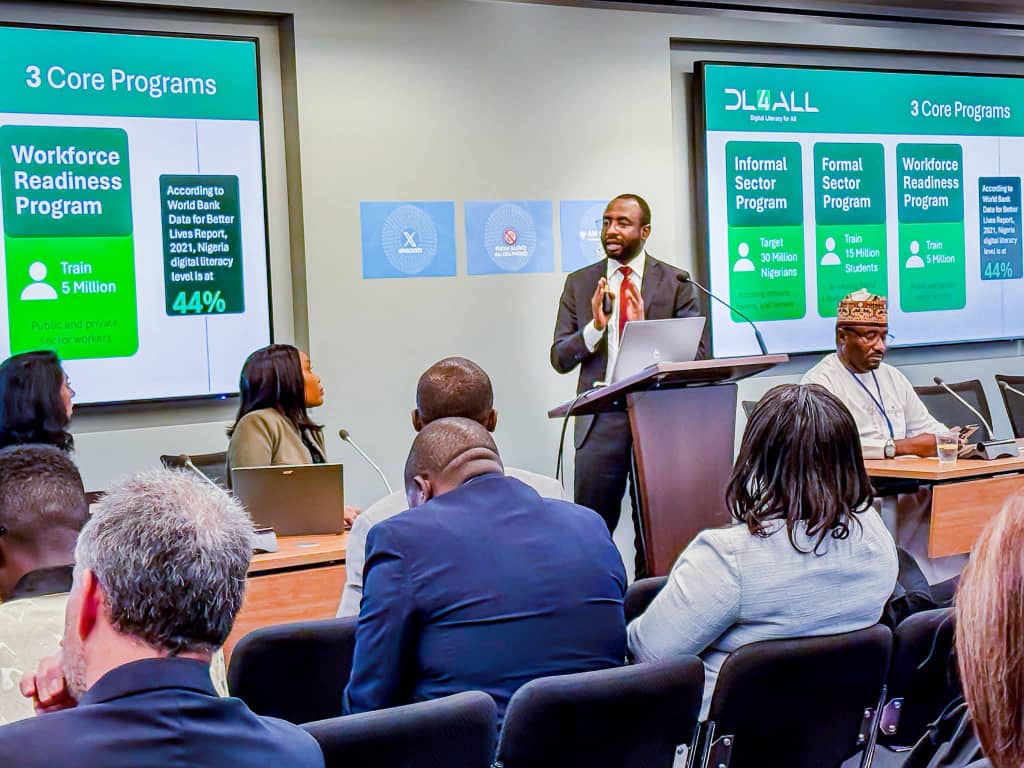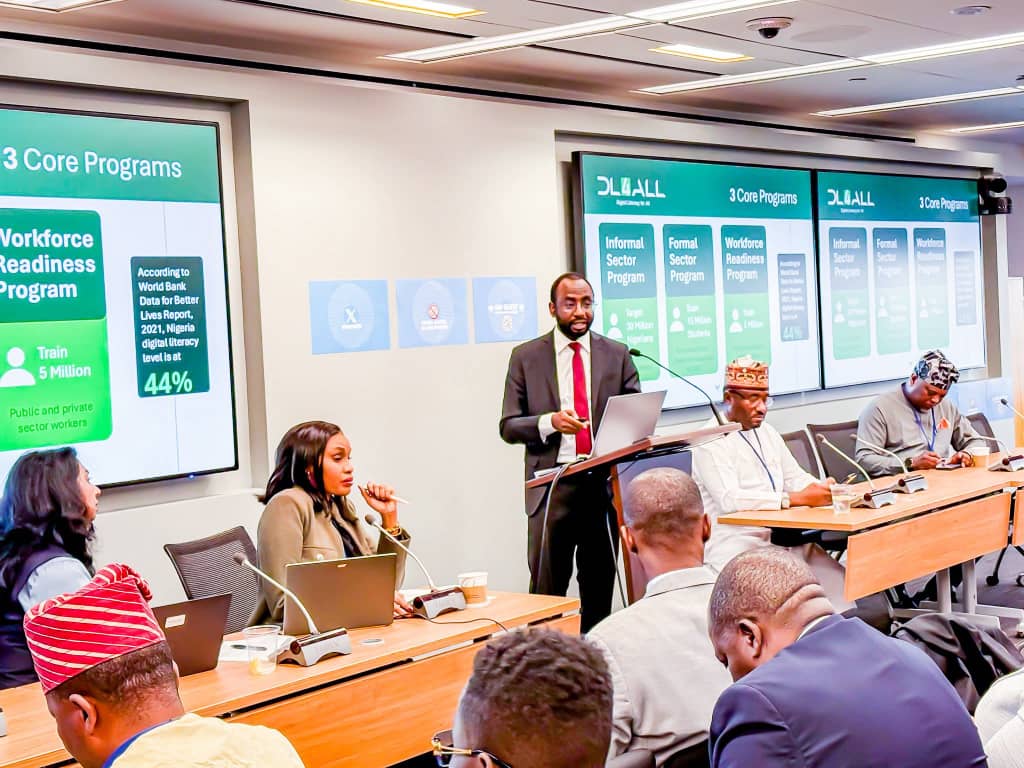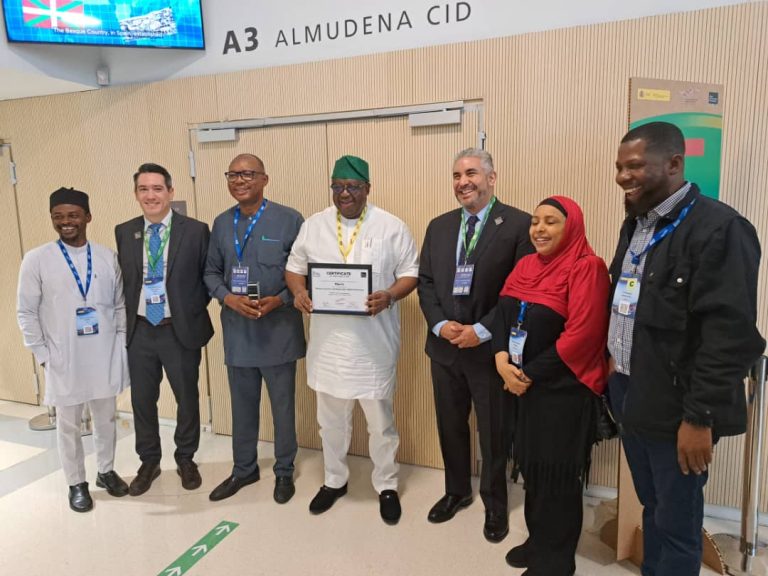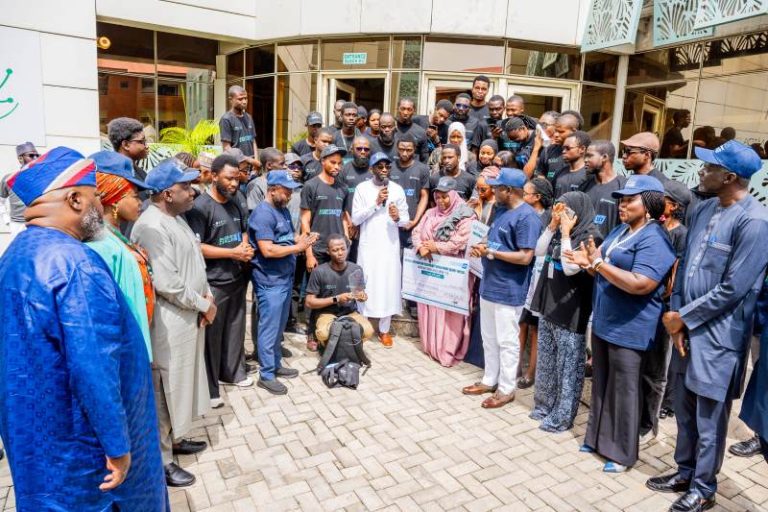
The Director General of the National Information Technology Development Agency (NITDA), Kashifu Inuwa, CCIE, has highlighted the critical role of renewable energy and digital technology in accelerating inclusive economic growth and transforming rural communities across Nigeria.
Speaking as a panelist at the Civil Society Policy Forum during the 2025 Annual Meetings of the World Bank Group and International Monetary Fund (IMF) in Washington D.C., Inuwa described renewable energy as a foundational driver for digital inclusion and sustainable development.
“Renewable energy is not the destination. It is a catalyst. When there is power, connectivity follows—and that connectivity triggers real transformation,” he said.
Empowering Rural Nigeria Through Clean Energy and Tech
Inuwa emphasized how access to clean, reliable energy and technology can reshape rural livelihoods. He cited examples ranging from AI-powered agricultural tools and e-commerce platforms for women entrepreneurs, to remote digital jobs that enable rural youth to earn globally while staying rooted in their communities.
“A farmer with a simple mobile app can double his income, educate his children, and even employ others,” he said. “Likewise, a young person with internet access doesn’t need to move to Lagos or Abuja—he can work remotely and earn in dollars from his village.”
The NITDA boss linked these efforts to President Bola Ahmed Tinubu’s Renewed Hope Agenda, which focuses on sustainability, economic diversification, and inclusivity. He explained that Nigeria’s digital economy strategy, under the Federal Ministry of Communications, Innovation, and Digital Economy, is built on five core pillars:
- Knowledge
- Policy
- Infrastructure
- Innovation and Entrepreneurship
- Trade
These are further expanded within NITDA’s operational framework, which includes eight strategic pillars such as digital literacy, research and development, cybersecurity, and strategic partnerships.

Digital Literacy: Foundation for a Skilled Future
Inuwa announced that NITDA, in collaboration with the Federal Ministry of Education, is working to embed digital literacy into Nigeria’s school curriculum—from early childhood education through tertiary levels. Additionally, digital competency has been made a requirement for civil service employment and promotion, underscoring the government’s commitment to a digital-first workforce.
Through these initiatives, the agency aims to train 50 million Nigerians by 2027, building a digitally skilled population capable of driving national transformation.
“Our vision is clear, our journey is set, and our resolve is stronger than ever,” Inuwa concluded. “We invite everyone to join us in building a digitally empowered and prosperous Nigeria.
World Bank Commits to Africa’s Energy Future
Also speaking at the session, Fowzia Hassan, Senior Operations Officer for Infrastructure at the World Bank Group, reaffirmed the Bank’s commitment to expanding energy access across Africa through its Mission 300 (M300) initiative, which targets 300 million new energy connections by 2030.
“Access to energy has always been central to the Bank’s development agenda,” said Hassan. “But with M300, we have a clear target, a deadline, and the resources to deliver.”
She explained that the initiative combines the efforts of the World Bank, International Finance Corporation (IFC), and Multilateral Investment Guarantee Agency (MIGA) to strengthen policy environments, attract private capital, and deploy blended finance models to extend energy access to underserved areas.
Women at the Center of Energy Transition
Hassan also highlighted the gender dimension of energy access, noting that women represent 32% of Africa’s renewable energy workforce, primarily in non-technical roles, according to data from the International Renewable Energy Agency (IRENA).
“Women are not just energy consumers; they are producers and decision-makers. Yet many still face systemic barriers—from limited finance to unequal education and workplace exclusion,” she said.
She pointed to World Bank-supported initiatives including:
National Energy Compacts, in partnership with the African Development Bank (AfDB)
The DAIRS program in Nigeria, mobilizing over $1 billion for mini-grids and solar systems
The Women in Energy Network Africa (WEN-Africa), which has already facilitated jobs for 57 women, with a goal of creating 4,000 energy sector jobs for women within three years
“Creating a clean, inclusive, and just energy transition is not just about connecting homes,” Hassan concluded. “It’s about empowering people—especially women and youth—to drive Africa’s prosperity.”



